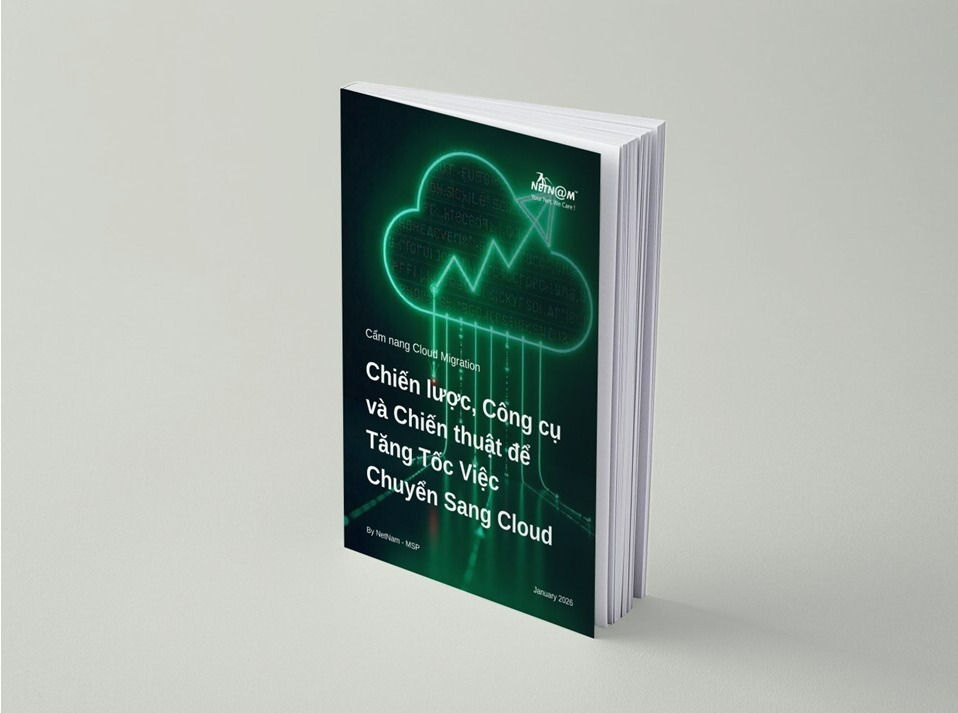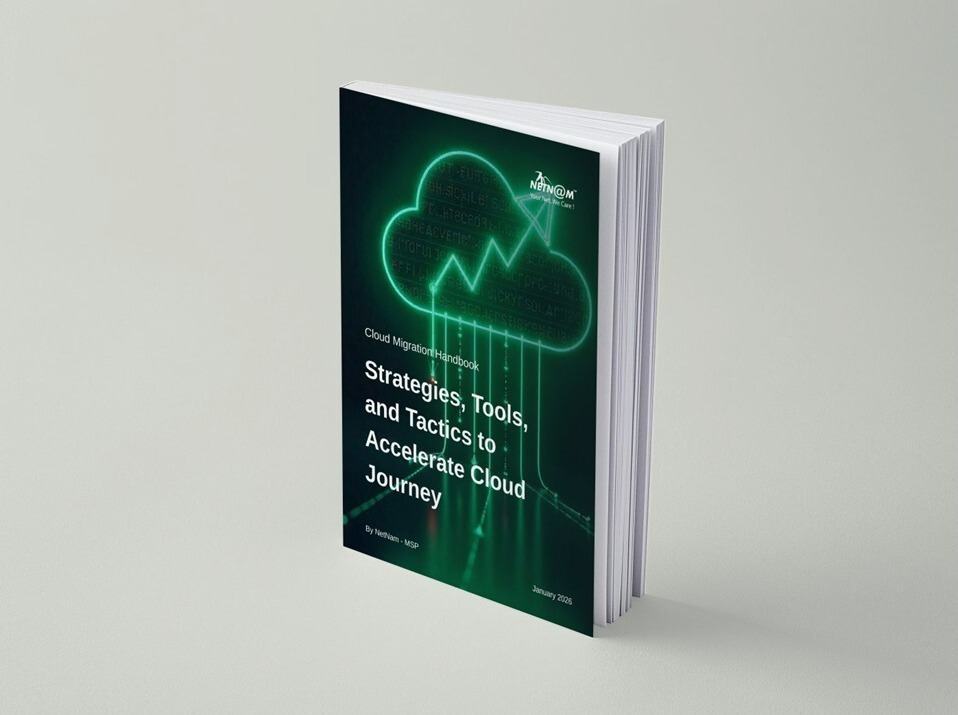6 Priorities for Retail Chain Expansion in 2025

The year 2025 is expected to be a breakthrough moment for global retail. After a period of economic volatility, consumer behavior has shifted dramatically. Customers now demand convenience, personalization, and seamless experiences across both online and offline channels. Against this backdrop, many businesses are prioritizing the expansion of multi-location retail chains to capture market share and strengthen customer engagement.
Yet scaling a retail network is about much more than real estate, product assortment, or marketing. Long-term success depends heavily on technology infrastructure. Without a stable, secure, and flexible ICT foundation, businesses risk operational disruptions, rising costs, and the erosion of customer trust.
Retail Megatrends in 2025 and What They Mean for Chains
According to Deloitte, several critical shifts will shape how retailers expand and manage their networks in 2025.
Omnichannel as the Standard
Customers now expect a fully synchronized experience across all touchpoints, from physical stores to websites, mobile apps, and social platforms. Deloitte describes this as “personalized products, emotional connection, and absolute convenience.” The shift marks the evolution from multichannel presence to fully integrated retail chain management.
AI and Data at Scale
In 2025, AI in retail extends far beyond chatbots or product recommendations. It enables real-time behavior analysis, demand forecasting, inventory optimization, and dynamic pricing. The ability to move from mass service to personalized service at scale will be a decisive competitive advantage.
.png?width=1920&height=1080&name=NetNam%20blog%20image%20(39).png)
Omnichannel and AI are set to define retail in 2025, driving synchronized experiences and personalization across every interaction.
Supply Chain Resilience
Retailers are prioritizing resilient supply chains supported by IoT and data-driven monitoring to minimize disruptions. A sustainable supply chain will be the backbone of effective expansion and reliable operations across networks.
Cybersecurity as a Strategic Imperative
With digital payments and customer data becoming increasingly central, cybersecurity has moved to the top of the agenda. Retailers must comply with international standards such as PCI DSS and GDPR, while deploying Managed Security Services (MSSP) for 24/7 monitoring. Strong protection safeguards customers and ensures ICT infrastructure remains stable across the chain.
.png?width=1920&height=1080&name=NetNam%20blog%20image%20(40).png)
In 2025, retailers prioritize sustainable supply chains and cybersecurity, powered by IoT, data, and MSSP to ensure safe and efficient operations.
Streamlining Operation Efficiency
Cost pressures are pushing retailers to accelerate automation and adopt AI and Managed Services to optimize resources. This approach helps control expenses while maintaining agility during network expansion.
The Digital-Ready Workforce
People remain a critical part of the global retail picture. Leading retailers are investing in digital skills training, supporting remote teams, and restructuring IT departments to handle multi-location operations.
.png?width=1920&height=1080&name=NetNam%20blog%20image%20(38).png)
Retailers invest in AI, automation, and Managed Services for cost efficiency, while training staff for digital-ready operations.
Across all these trends, technology and ICT infrastructure remain the foundation. For retailers planning expansion in 2025, these global directions provide essential guidance for shaping strategy.
The Challenges of Multi-location Retail
Operating a large retail chain means managing dozens or even hundreds of sites simultaneously, each carrying its own risks and complexities.
- Unstable connectivity: A single store losing connection can disrupt POS transactions, directly impacting revenue and customer experience.
- Fragmented data: Without integrated inventory, CRM, and ERP systems, discrepancies arise, causing inefficiencies and losses.
- Security vulnerabilities: POS and payment systems are prime targets for cyberattacks. Non-compliance with PCI DSS or GDPR can lead to severe financial and reputational damage.
- Overstretched IT teams: Internal staff often cannot monitor, maintain, and resolve issues quickly enough across an entire network.
- Fragile supply chains: Without technology-enabled monitoring, continuity suffers when sourcing or logistics are disrupted.
.png?width=1920&height=1080&name=NetNam%20blog%20image%20(36).png)
Key challenges in multi-location retail: from connectivity failures and fragmented data to cybersecurity risks, supply chain disruptions, and overstretched IT teams.
These challenges highlight the importance of investing in robust ICT infrastructure as the foundation for expansion.
Six Factors Retailers Must Prioritize in Expansion
Expanding a retail chain requires more than business strategy. It demands a stable and flexible ICT backbone. The following six priorities define the difference between a chain that grows sustainably and one that struggles with disruption.
1. Stable and Synchronized Connectivity
Strong connectivity is the cornerstone of multi-location retail. Retailers should deploy Dedicated Internet Access (Leased Line), enterprise Wi-Fi, and 5G backup to ensure uninterrupted POS operations. Proactive bandwidth monitoring enables timely issue detection, reducing downtime.
2. Cloud and Hybrid Infrastructure for Scalability
Cloud-based POS, ERP, and CRM systems allow centralized management of the entire chain. Hybrid cloud balances cost and performance while minimizing latency across regions. This makes it easier for retailers to scale quickly without infrastructure bottlenecks. In fact, cloud migration has become both a strategic advantage and a significant challenge for global retailers, particularly those expanding multi-location operations.
.png?width=1920&height=1080&name=NetNam%20blog%20image%20(37).png)
Cloud systems provide the ICT foundation for scalable and centrally managed retail chains.
3. Data Security and Compliance with Global Standards
Customer and transaction data is a retailer’s most valuable asset. Compliance with international frameworks such as PCI DSS, GDPR, and ISO 27001, combined with MSSP services offering scanning, penetration testing, and 24/7 monitoring, ensures resilience against increasingly sophisticated threats like ransomware and phishing in 2025.
4. Centralized Management and Remote Monitoring
Instead of troubleshooting issues store by store, IT managers need a centralized dashboard to oversee networks, servers, and applications. This approach reduces pressure on IT staff while delivering regular reports and actionable insights for faster, more informed decisions.

Centralized data monitoring is the foundation for secure and effective retail chain management.
5. Cost Optimization through Managed Services
Rather than large upfront CAPEX on hardware and staff, retailers can adopt OPEX-based Managed Services. With clear SLAs and 24/7 support, this model reduces internal workloads while ensuring operational reliability.
6. Sustainable Scalability and New Technology Integration
Retailers must prepare for future technologies. IoT enables energy management and warehouse monitoring, AI enhances shopping behavior analysis, and retail media unlocks new revenue streams. Above all, ICT systems must remain stable and flexible enough to integrate these technologies without disrupting operations.
The Long-term ROI of Sustainable ICT Infrastructure
Investing in ICT is not a sunk cost but a long-term value driver. A stable system reduces downtime and enhances customer experience with seamless connectivity and fast payments, encouraging loyalty and repeat visits. Managed Services lower annual ICT costs, freeing resources for strategic reinvestment. Compliance with international security standards also builds brand credibility and strengthens trust with customers, partners, and investors.
ROI from sustainable ICT infrastructure should therefore be measured not only in financial terms but also in the ability to maintain continuity and scale confidently in a highly competitive retail market.
How NetNam Powers Retail Expansion
With more than 30 years of experience supporting enterprises and multinational corporations, NetNam provides comprehensive IT Infrastructure Managed Services (MISP) and Managed Security Services (MSSP). We serve as a strategic partner, helping retailers build robust ICT foundations ready for future expansion.
Contact NetNam for tailored ICT solutions that enable secure, stable, and scalable retail chain growth.
Contact NetNam:
- Hotline: 1900 1586
- Email: support@netnam.vn
- Website: www.netnam.com
Submit your request








